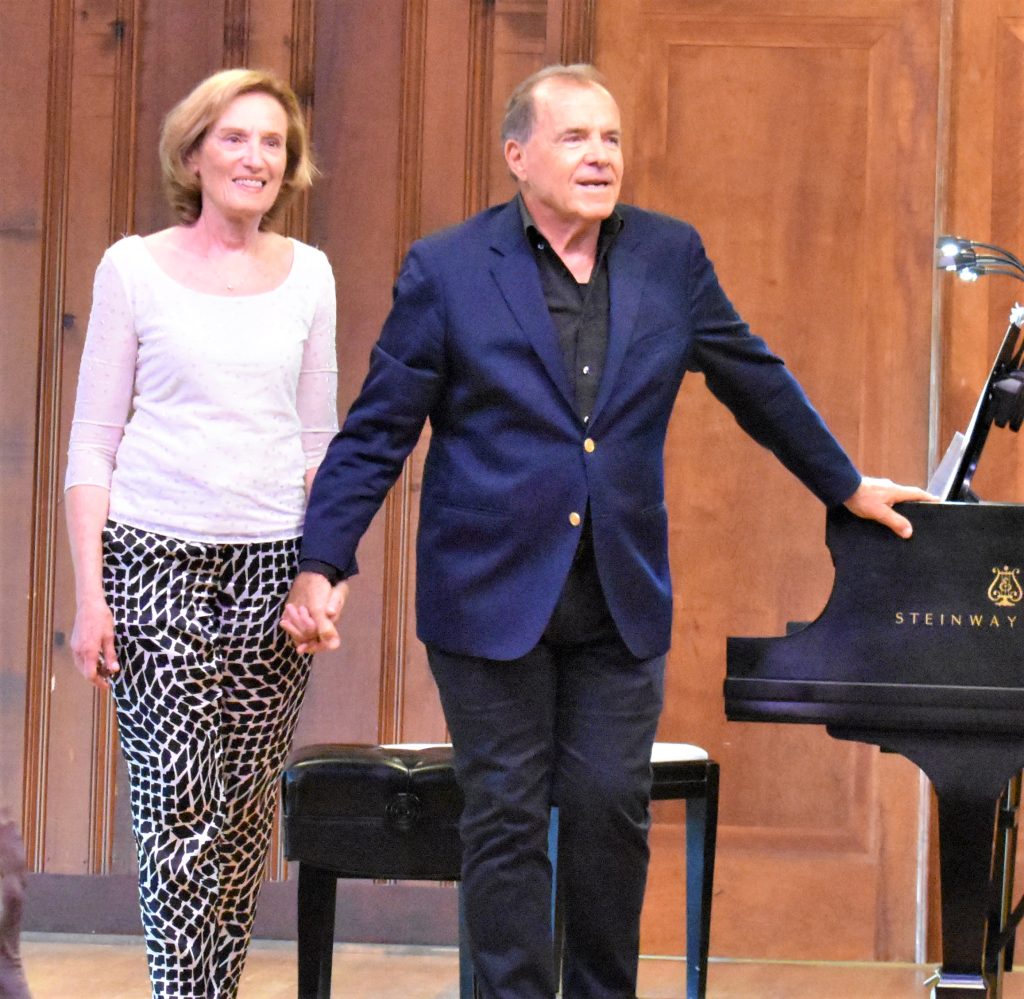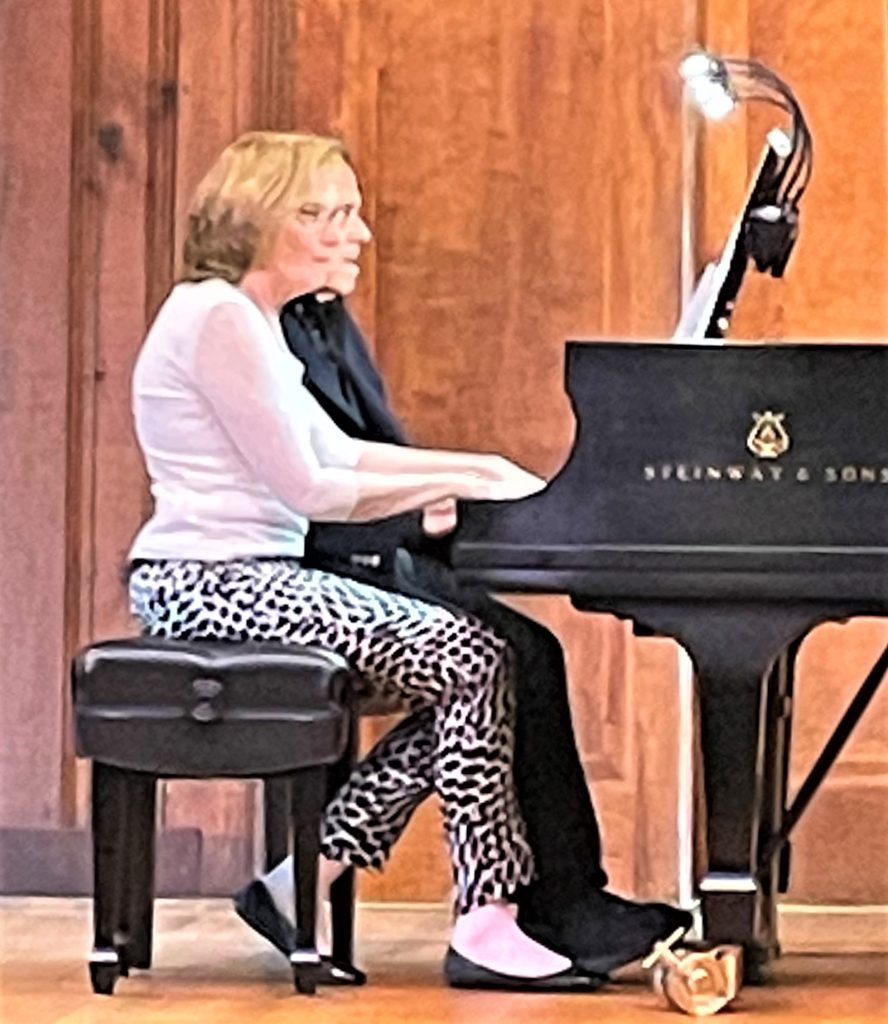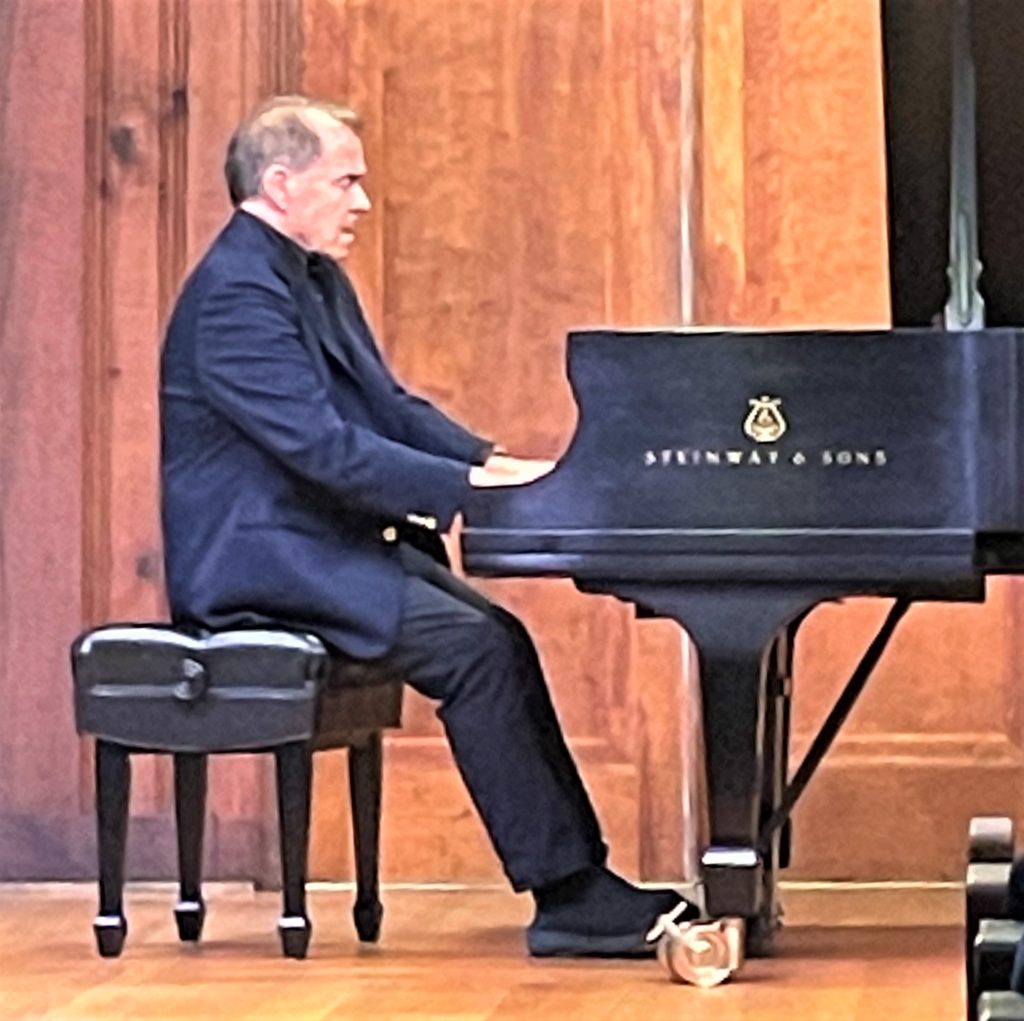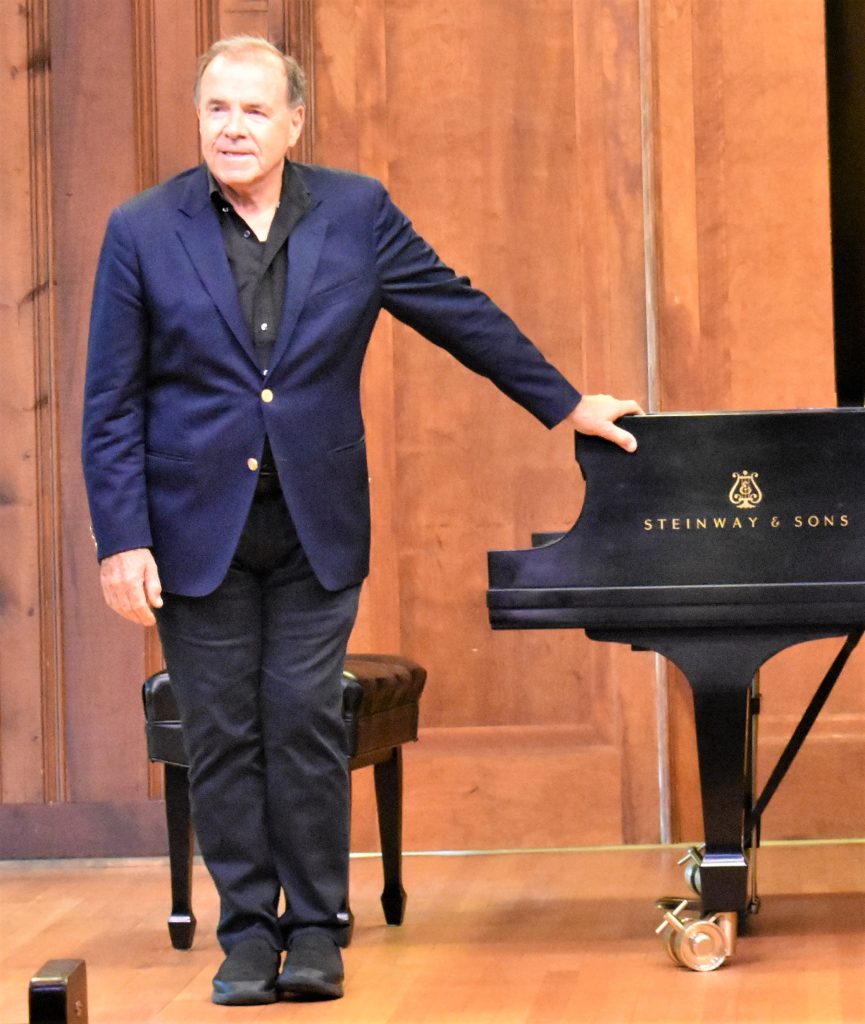
by Kevin T McEneaney
Last Sunday Music Mountain featured two of Franz Schubert’s late piano compositions. During his short lifetime of 31 years, Schubert composed about 1500 works, over 600 of which were for solo piano and voice. It remains amusing that in his early years of composing, he earned a nickname for idleness from his peers: “Canevas,” which means “Can he do anything?”
Misha and Cipa Dichter performed Sonata in C Major for Piano Four-hands, Grand Duo, D. 812 (1824). Four-hand piano works were a salon. or party, novelty, but Schubert elevated the genre to the concert hall with this composition. The opening alludes to his own Great C Major symphony and contains several references to Beethoven. The opening movement brims with joyful song-like lyricism that expands into nearly symphonic inflection. The Lied-like opening conceals melodic themes that emerge later for impressive dramatic effect; lyric impulse is transformed into an epic landscape.

The intertextual, coordinated knitting of sound and rhythm by Cipa and Misha Dichter offered an amazing allegory of how two people can be on the same page at the same moment. Within the traditional four-movement structure all four movements are interlocked, yet there is the shadow of a sinister flat trill that haunts the composition, delivering serious drama lurking below heightened lyricism. The finale, as in an allegory, exudes an optimistic resolution as the question of compatibility has been happily resolved between two people who labor together to produce a masterpiece. This allegory might refer to the role of the composer and conductor in the process of rehearsing and adjusting the nuances of a complicated orchestral performance. (Some ridiculous commentators refer to the sinister theme as Schubert’s struggle with syphilis amid a temporary remission that provides the happy theme of resolution, yet we do not know why he died at 31 (typhoid fever was the most common possibility), nearly the average age of a person at that time.) The audience demanded three bows for both performers.

After intermission, Misha performed Piano Sonata in B-Flat Major, D. 960 (1828). This composition was completed at his brother Ferdinand’s house three weeks before Schubert’s death and published about ten years later. This piano sonata also features a Lied-like opening and conceals dynamic effects that are revealed later and provide a lingering poetic ambiance. The rondo theme glances over the shoulder at Beethoven and appears to dismiss the haunting drama of the great composer in favor of a light, trilling poetic ecstasy made so memorable by the liquid fingers of Misha traversing the keyboard with such accomplished ease which appeared to be a magical revelation.
The Scherzo employs syncopated rhythms with nervous accents in which Dichter excelled with subtle nuance. The Finale presents a reversal contrast between B-minor and B-major with the latter ironically delivering more impressive poignancy. That Finale recalls the opening lyricism with fond nostalgia (for his early lieder?) and dives into a thrilling presto coda for the exuberant conclusion.

Once more the audience demanded three bows from the pianist, who as a young man, once played this composition for Arthur Rubenstein on Rubenstein’s piano in his Paris home. Dichter has undergone multiple surgeries on his hands to allow him to continue playing, due to a condition called Dupuytren’s contracture. Misha’s reputation enjoys a long list of varied acclaimed recordings for Philips, RCA, Music Masters, and Koch Classics.
